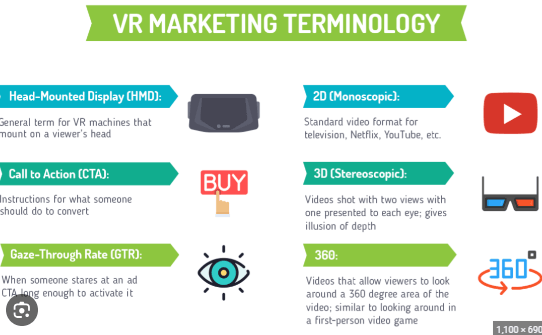In the ever-changing realm of digital marketing, businesses are consistently exploring inventive methods to enthrall their audience. Virtual Reality stands out as a revolutionary force, providing immersive encounters that surpass traditional marketing approaches. It is essential to explore the domain of virtual reality and disclose exceptionally potent marketing strategies that businesses can employ to elevate their brand visibility. These practices will also help connect with customers in unprecedented ways.
1. Immersive Product Showcases: Elevating the Shopping Experience
Virtual reality allows businesses to transcend traditional product showcases by offering immersive experiences. Imagine enabling customers to virtually try on clothes, test out gadgets, or explore real estate without leaving the comfort of their homes. Know that this tactic not only enhances customer engagement but also bridges the gap between online and offline shopping experiences. To establish a strong online presence, businesses looking to efficiently manage multiple online ventures can also turn to reseller hosting plans. It can provide a convenient and cost-effective solution for hosting and managing multiple domains under a single account.
2. Virtual Brand Storytelling: Creating Lasting Impressions
Crafting a captivating brand storyline is essential for establishing a robust connection with clients. Virtual reality offers an engaging avenue for businesses to unfold their narratives in a manner that profoundly connects with the intended audience. Enterprises have the capability to forge enduring impressions by involving customers in a virtual exploration of the brand’s background, principles, and aspirations.
3. Virtual Events and Experiences: Breaking Geographical Barriers
Hosting virtual events and experiences through Virtual reality can be a game-changer in an era of remote connectivity. Businesses can conduct product launches, trade shows, or even team-building activities in a virtual space, breaking geographical barriers and reaching a global audience. This tactic not only save huge costs but also allows for a more inclusive and interactive event experience.
4. Virtual Reality Social Media Campaigns: Fostering Community Interaction
Utilizing social media proves to be a potent means of engaging with audiences. Companies can introduce challenges, games, or experiences based on virtual reality across social platforms, prompting user involvement and cultivating a community spirit. This strategy not only amplifies brand presence but also fortifies the connection between the brand and its audience.
5. Interactive VR Ads: Engaging Audiences Like Never Before
Traditional advertising methods often struggle to capture audience attention. The dynamic landscape of digital marketing demands innovative strategies that go beyond traditional methods, engaging audiences in more interactive and personalized ways to create lasting impressions and drive meaningful connections with brands. Interactive Virtual reality ads make customers become active participants rather than passive observers. Businesses can create immersive ad experiences that allow users to explore products, services, or even take part in virtual trials. This level of engagement can significantly boost brand recall and conversion rates.
6. VR-powered Training and Simulations: Enhancing Employee Skills
Virtual reality emerges as a valuable asset, not just for captivating customers but also for training and enhancing the expertise of employees. Because of VR businesses have the capability to replicate real-world scenarios. They can provide hands-on training to their employees in a secure and controlled environment. The substantial benefits of this method are particularly noteworthy in sectors like healthcare, aviation, and manufacturing, where practical training holds immense importance.
Companies adopting these cutting-edge marketing strategies position themselves uniquely in a competitive digital environment, especially as virtual reality continues to advance. The possibilities are vast, from immersive product showcases to interactive VR ads. Businesses can enhance their online presence by considering Windows hosting plans, ensuring a seamless and reliable platform for delivering immersive VR experiences to their target audience. Companies can not only keep pace with industry trends but also offer their audience memorable encounters that make a lasting impact on their brand by incorporating these approaches. There is no doubt that the future of marketing lies in the virtual realm, and those who actively embrace its possibilities will enjoy the benefits of a more engaged and closely connected customer base.
